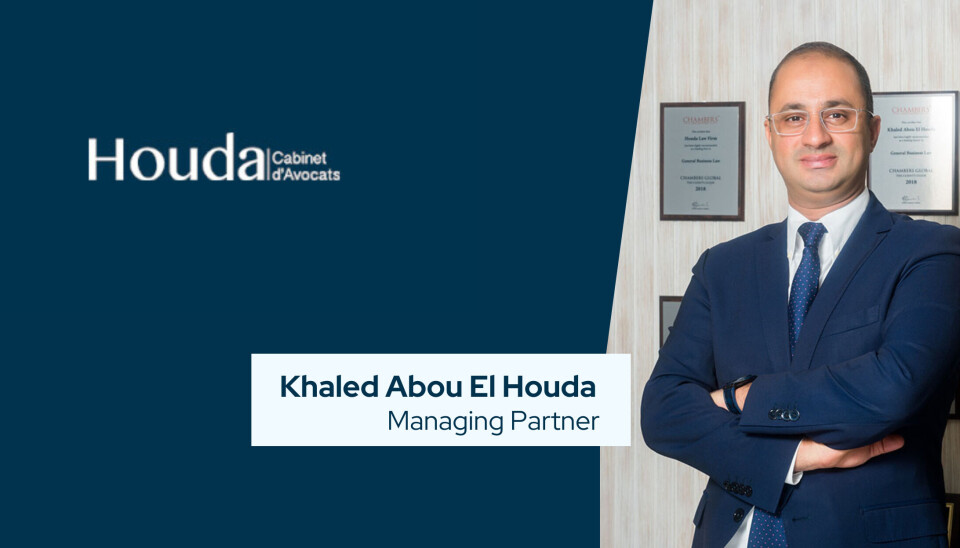Copyright : Re-publication of this article is authorised only in the following circumstances; the writer and Africa Legal are both recognised as the author and the website address www.africa-legal.com and original article link are back linked. Re-publication without both must be preauthorised by contacting editor@africa-legal.com
Spotlight on Senegal: economic reform and investor opportunities

Following Senegal’s historic political change last year, what should investors and legal teams now be watching for in a new landscape? Leading business lawyer Khaled Abou El Houda canvasses regulatory shifts and key challenges and opportunities for those involved in the West African nation
In Senegal one of the key gaps between economic ambition and current legal frameworks lies in the regulation of the digital economy and emerging technologies, but like other areas of modernisation and economic reform, the new government is turning its attention to such matters, says Khaled Abou El Houda.
“While the country aims to become a technology hub and stimulate innovation, the existing legal framework for areas such as personal data protection, cybercrime, and online transactions has not always kept pace with technological developments,” says Houda, a leading business lawyer in West Africa, and Managing Partner of Cabinet d'Avocats Houda, which has offices in Dakar and Abidjan. “The law often lags behind these ambitions, creating a legal grey area.”
As examples, Houda points to Senegal’s Personal Data Protection Act from 2008, which no longer adequately covers the challenges posed by big data, AI, and international platforms, as well as the fragmented regulation of e-commerce and digital services, which makes it difficult for foreign companies to comply and can increase operating costs as the uncertainty forces them to take extra precautions.
“To bridge this gap, the Senegalese government has set up a steering committee for the reform of the General Tax Code and is working on draft legislation on the digital economy,” notes Houda, whose firm advises businesses, investors, and governments across the UEMOA and OHADA regions. “These initiatives are crucial to reassure investors by showing them that the country's legal framework is adapting to modern economic realities and protecting their interests.”
The reform of the General Tax Code is one of two key regulatory changes in Senegal that Houda is expecting, and believes business, investors, and their in-house legal teams should be watching for. The other is the Customs Code.
“The reform of the Customs Code is crucial because it is part of a broader government effort to modernize and make the legal framework more consistent with the objectives of fiscal consolidation and economic competitiveness.”
The implications for businesses are significant, says Houda, with simplified and streamlined procedures that could reduce delays and costs in international trade, integrated regulation of new technologies such as AI and blockchain, and the establishment of a more modern, professional relationship between the Customs Administration and economic operators that will promote greater mutual trust.
The Senegalese government has also launched several initiatives to digitise legal processes, notes Houda, including a pilot project for an e-justice platform, the ongoing digitisation of civil status records to create a reliable, secure digital ID for all citizens, and efforts to make laws and legal documents accessible online.
“Digitalisation is transforming the law in Senegal in a gradual but significant way… It is an ongoing process that aims to make justice more accessible and efficient.”
With the new Senegalese government committed to reforming the nation’s economy to better benefit its citizens - including by renegotiating natural resource contracts, and possible introduction of stronger local content or higher tax policies - it’s vital that businesses, investors, and their legal teams take a proactive approach, engaging in constructive dialogue with the new government and regulators, and partnering with local experts to help guide the way.
“Senegalese lawyers are much more than just legal technicians,” says Houda. “They are often key players in public affairs, familiar with the complex workings of institutions, administrative practices, and informal relationships that can influence the smooth running of a project. Senegalese lawyers have an intimate knowledge of how ministries, regulatory agencies, and courts operate on a daily basis. This knowledge, which cannot be found in legal texts, is crucial for anticipating obstacles, speeding up procedures, and resolving problems effectively.”
